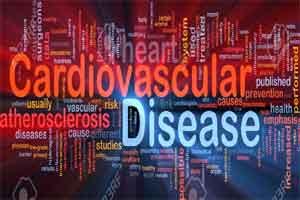- Home
- Editorial
- News
- Practice Guidelines
- Anesthesiology Guidelines
- Cancer Guidelines
- Cardiac Sciences Guidelines
- Critical Care Guidelines
- Dentistry Guidelines
- Dermatology Guidelines
- Diabetes and Endo Guidelines
- Diagnostics Guidelines
- ENT Guidelines
- Featured Practice Guidelines
- Gastroenterology Guidelines
- Geriatrics Guidelines
- Medicine Guidelines
- Nephrology Guidelines
- Neurosciences Guidelines
- Obs and Gynae Guidelines
- Ophthalmology Guidelines
- Orthopaedics Guidelines
- Paediatrics Guidelines
- Psychiatry Guidelines
- Pulmonology Guidelines
- Radiology Guidelines
- Surgery Guidelines
- Urology Guidelines
Statins have no role in primary prevention of CVD in elderly : BMJ

But evidence on the effects of statins for older people without heart disease (known as primary prevention) is lacking, particularly in those aged 85 years or older and those with diabetes.
Using data from the Catalan primary care system database (SIDIAP), they identified 46,864 people aged 75 years or more with no history of cardiovascular disease between 2006 and 2015. Participants were grouped into those with and without type 2 diabetes and as statin non-users or new users (anyone starting statins for the first time during the study enrollment period).
Primary care and hospital records were then used to track cases of CVD (including coronary heart disease, angina, heart attack, and stroke) and death from any cause (all-cause mortality) over an average of 5.6 years.
Also Read: Consume eggs daily to keep cardiovascular diseases at bay: Study
Key Findings:
- In participants without diabetes, statin treatment was not associated with a reduction in CVD or all-cause mortality in both old and very old age groups, even though the risk of CVD in both groups was higher than the risk thresholds proposed for statin use in guidelines.
- In participants with diabetes, however, statins were associated with significantly reduced levels of CVD (24%) and all-cause mortality (16%) in those aged 75-84 years. But this protective effect declined after age 85 and disappeared by age 90.
Results of the study, do not support the widespread use of statins in old and very old people, but they do support treatment in selected people, such as those aged 75-84 years with type 2 diabetes, say the researchers.
This was an observational study, so no firm conclusions can be drawn about cause and effect, and the authors cannot rule out the possibility that some of their results may be due to unmeasured (confounding) factors.
But they point out that this was a high-quality study with a large sample size, reflecting real-life clinical conditions.
A such, they conclude that their results do not support the widespread use of statins in old and very old populations, but they do support treatment in those with type 2 diabetes younger than 85 years.
In a linked editorial, Aidan Ryan at University Hospital Southampton and colleagues, say the biggest challenge for clinicians is how to stratify risk among those aged more than 75 to inform shared decision making.
These observational findings should be tested further in randomized trials, they write. In the meantime, they say "patient preference remains the guiding principle while we wait for better evidence."
"Our results show a lack of association between statin treatment and reduction in atherosclerotic CVD events or all-cause mortality in the absence of type 2 diabetes mellitus in old and very old groups, although the incidence (ie, risk) of atherosclerotic CVD in both age groups was significantly higher than the risk thresholds proposed for statin use in the guidelines for cardiovascular prevention," concluded the study authors.
For further reference follow the link: https://doi.org/10.1136/bmj.k3359

Disclaimer: This site is primarily intended for healthcare professionals. Any content/information on this website does not replace the advice of medical and/or health professionals and should not be construed as medical/diagnostic advice/endorsement or prescription. Use of this site is subject to our terms of use, privacy policy, advertisement policy. © 2020 Minerva Medical Treatment Pvt Ltd